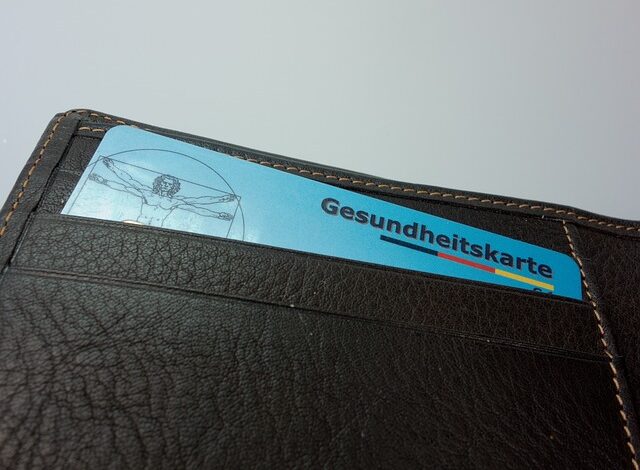Greek Banking System: How to Manage Your Finances

Managing your finances effectively is essential, especially when living or working in a foreign country like Greece. The Greek banking system has undergone significant changes over the past decade, particularly following the financial crisis of 2008 and subsequent austerity measures. While the system has stabilized, there are still unique aspects to consider when handling your money in Greece. This guide will walk you through everything you need to know about managing your finances in Greece, from opening a bank account to understanding taxes and digital banking options.
1. Opening a Bank Account in Greece
Types of Accounts
- Current Account (Τρεχούμενος Λογαριασμός): Used for everyday transactions such as paying bills, receiving salaries, and making withdrawals.
- Savings Account (Αποταμιευτικός Λογαριασμός): Ideal for storing money with the potential to earn interest.
- Joint Account (Κοινός Λογαριασμός): Shared between two or more individuals, often used by families or business partners.
Documents Required
To open a bank account in Greece, you’ll typically need:
- A valid passport or ID card.
- Proof of address (e.g., utility bill or rental agreement).
- Tax Identification Number (AFM – Αριθμός Φορολογικού Μητρώου).
- Proof of income or employment (if applicable).
Choosing a Bank
Greece has several major banks, including:
- National Bank of Greece (NBG)
- Piraeus Bank
- Eurobank
- Alpha Bank
Each bank offers similar services, but fees, customer service, and branch accessibility may vary. Research online reviews or ask locals for recommendations.
2. Understanding Currency and Exchange Rates
- Currency: The official currency in Greece is the Euro (€), which simplifies financial management for EU residents.
- Exchange Rates: If you’re transferring money from another currency, use reputable exchange services or online platforms to get competitive rates. Avoid exchanging cash at airports or tourist areas, as fees tend to be higher.
3. Using ATMs and Debit/Credit Cards
ATMs (ΗΛΕΚΤΡΟΝΙΚΟΙ ΤΑΜΕΙΑΚΟΙ ΑΥΤΟΜΑΤΟΙ)
- ATMs are widely available in cities and towns, though they may be scarce on smaller islands.
- Withdrawal limits vary by bank, so check with your provider before traveling.
- Be cautious of skimming devices; always cover the keypad when entering your PIN.
Debit and Credit Cards
- Most Greek banks issue Visa or Mastercard debit/credit cards, which are accepted at most businesses.
- Contactless payments are increasingly popular, especially in urban areas.
- Notify your home bank if you plan to use your foreign-issued card in Greece to avoid fraud alerts.
4. Transferring Money Internationally
If you need to send or receive money internationally, consider these options:
- Bank Transfers: Secure but can involve high fees and unfavorable exchange rates.
- Online Services: Platforms like Wise (formerly TransferWise), Revolut, or PayPal offer lower fees and better exchange rates.
- Western Union/MoneyGram: Useful for urgent transfers but often expensive.
5. Paying Bills and Managing Expenses
Utility Bills
Utilities such as electricity, water, and internet can usually be paid:
- Online via e-banking.
- At kiosks (περίπτερα) using cash or credit/debit cards.
- Through direct debit from your bank account.
Taxes
- Tax Identification Number (AFM): Essential for all financial transactions, including renting property, buying a car, or filing taxes.
- Income Tax: Progressive tax rates apply based on earnings. Non-residents pay tax only on Greek-sourced income.
- VAT (ΦΠΑ): Standard rate is 24%, with reduced rates for certain goods and services.
Budgeting Tips
- Track your spending using apps like Mint or YNAB (You Need A Budget).
- Take advantage of seasonal sales and discounts, especially for groceries and clothing.
- Use public transportation instead of taxis or renting a car to save money.
6. Digital Banking in Greece
Greek banks have embraced digital technology, offering robust online and mobile banking platforms. Features typically include:
- Viewing account balances and transaction history.
- Transferring funds domestically and internationally.
- Paying bills and setting up recurring payments.
- Applying for loans or credit cards.
Download your bank’s app and familiarize yourself with its features to streamline your financial management.
7. Loans and Mortgages
Personal Loans
- Available for various purposes, such as education, travel, or debt consolidation.
- Interest rates depend on factors like credit score and income stability.
Mortgages
- Obtaining a mortgage as a non-resident can be challenging due to stricter lending criteria post-crisis.
- Down payments typically range from 20% to 40% of the property value.
- Work with a local real estate agent or financial advisor to navigate the process.
8. Insurance and Investments
Insurance
- Health insurance is mandatory if you’re employed in Greece. Self-employed individuals should explore private plans.
- Home, car, and life insurance policies are also common and can be purchased through banks or specialized providers.
Investments
- Greeks traditionally favor low-risk investments like savings accounts or government bonds.
- For expats, consider consulting a financial advisor to align your investment strategy with both Greek regulations and your long-term goals.
9. Navigating Economic Challenges
While Greece’s economy has improved since the crisis, some challenges remain:
- High Unemployment: Job opportunities may be limited, particularly outside major cities.
- Bureaucracy: Administrative processes can be slow, so patience is key.
- Inflation: Rising costs of living mean careful budgeting is essential.
Stay informed about economic trends and adjust your financial strategies accordingly.
10. Building Credit History
If you’re new to Greece, building a credit history might take time. To establish trust with lenders:
- Open a local bank account and maintain regular deposits.
- Pay bills on time and avoid overdrafts.
- Consider small loans or credit cards to demonstrate responsibility.



